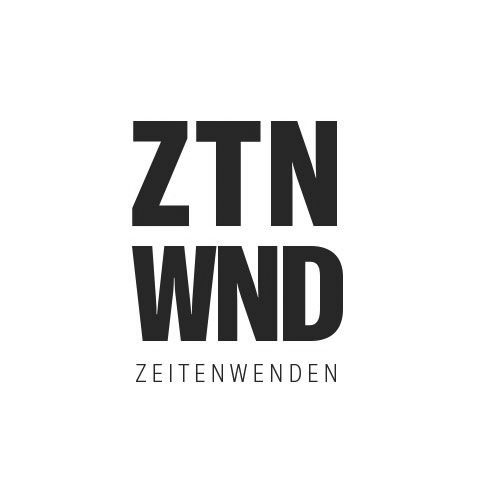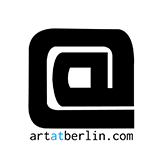The RuhrKunstMuseen are joining forces and bringing highlights from their art collections into dialog – digitally as a web app and from April 2025 in a major special exhibition at Villa Hügel.
Image above: Grete Stern, Traum Nr. 7, Buenos Aires, 1949, Silbergelatineabzug, Reprint, Photomontage, 20 x 25 cm © The Estate of Grete Stern courtesy of Galeria Jorge Mara – La Ruche, Museum Folkwang, Essen
The 21 RuhrKunstMuseen stand for the unique urban museum landscape in the Ruhr region and present over 150 art exhibitions in 16 cities in the region every year. Not only are they among the first museum collections of modern art in Germany, but together they also form one of the largest.

Now the multifaceted collections are linked in a playful way and can be discovered together: The digital WebApp www.21×21.de goes online on November 7. It shows over 400 works of art from the 21 museums in dialog and provides a cross-section of the regional and international history of 20th and 21st century art collections. A major special exhibition with highlights from the collections of the RuhrKunstMuseen will then follow at Villa Hügel in Essen from April 11 to July 27, 2025.
Special features of the Ruhr region as an art location – the history of the collection
The collections of the RuhrKunstMuseen today comprise more than 500,000 works, ranging from modernist masterpieces such as those by August Macke, Paula Modersohn-Becker, Ernst Ludwig Kirchner and Marc Chagall to important positions in contemporary art such as those by Rosemarie Trockel, Nan Goldin, Timm Ulrichs and Ai Weiwei. Important national and international art movements such as Expressionism and post-war art with Informel, Concrete Art, Zero and Fluxus as well as the feminist avant-garde are represented in the collections. In addition to the genres of painting, sculpture and graphic art, photography and media art also play an important role in the collections. There are also representatives of regional artist groups such as junger westen, which was founded in Recklinghausen after the Second World War and propagated an abstract formal language and combined it with the industrial landscapes of the Ruhr region. While the Lehmbruck Museum in Duisburg, the Josef Albers Museum Quadrat Bottrop and the Emil Schumacher Museum Hagen are dedicated to the work of individual outstanding artists from the Ruhr region and their international influence on subsequent generations of artists, other museums such as the Zentrum für Internationale Lichtkunst Unna and the Skulpturen museum Marl impress with thematic collections and new artistic media.

The creation of the collections is usually due to civic engagement or the economic upturn in the financially strong municipalities of the time. The first foundations such as the Museum Folkwang – from 1902 in Hagen, from 1922 in Essen – date back to the early 20th century. With the first universities in the Ruhr region in Bochum and Dortmund in the post-war period, more and more museums dedicated to modern and contemporary art opened in the 1960s. In 2010, the network of now 21 RuhrKunstMuseen was founded as part of the European Capital of Culture RUHR.2010. To mark their 15th anniversary, the RuhrKunstMuseen are presenting the history, diversity and commonalities of their collections digitally and in 2025 for the first time together in a major special exhibition at Villa Hügel under the title 21 x 21.
The digital collection presentation – surf through 21 art museums and find your own favorites in the museum match
The multifaceted and diverse art collections can be discovered in a playful way from November 2024: The digital project 21 x 21. The Collections of the RuhrKunstMuseen conveys over 400 works of art from the individual museums in dialog and provides a cross-section of the collections.

Each of the 21 RuhrKunstMuseen selected a work from its collection, which served as an impulse for the other museums and formed the basis for a creative exchange. The partner museums each placed a work from their own collection alongside the 21 impulse works – the artworks thus combine different epochs, techniques, themes and artists to inspire a dialog and weave a broad network of associations on 21 thematic fields. The artworks are presented at www.21×21.de and on the RuhrKunstMuseen website in images, texts, animations and films (design and programming: blubb.media, Stuttgart). Renowned author and presenter Ronja von Rönne lends her own voice to the project. In the interactive museum match, based on dating platforms, users can find the right museum for them and follow their hearts in the art world of the Ruhr region.
The special exhibition – Dialogue of epochs, styles and techniques 21 x 21. The RuhrKunstMuseen on the hill | Villa Hügel, Essen | April 11 – July 27, 2025
In the special exhibition 21 x 21. The RuhrKunstMuseen on the hill, the broad spectrum of the collections can be experienced live. Based on the digital presentation of the collection, selected works are presented in themed rooms. Wilhelm Lehmbruck’s Große Sinnende (1913), for example, is an impulse for the artistic discussion about gender relations and the female image. A so-called Hearth Painting (1993) by contemporary artist Rosemarie Trockel responds to the modern bronze nude, as does a work by Lehmbruck’s contemporary Paula Modersohn-Becker or a contemporary work by Eliza Douglas.

Social upheavals are expressed in the impulse of the sculptor Anatol Herzfeld, who worked on the island of Hombroich in Neuss. His steel table with arm cuffs from the Drama Tisch action from 1969 addresses the tension between freedom of expression and censorship and links up with Martin Kippenberger’s We don’t have problems with disco door-waiters, if they don’t let us in, we don’t let them out (1986) or Richard Serra’s work Stop Bush from 2004, a graphic examination of the photographs of human rights violations in the Abu Ghraib military prison.
The diverse artistic view of the landscape takes center stage with Gabriele Münter’s work Schneelandschaft bei Kochel (1909), which enters into dialogue with (Schneelandschaft bei) Gelsenkirchen (1962) by Rudolf Holtappel and excerpts from the series Warm Breath (2022) by Angelika Trojnarski or Miles Coolidge’s Prosper-Haniel 4 mine.
The exhibition is characterized by the juxtaposition of internationally renowned female artists with artists who are closely associated with the history of the Ruhr area, which is shaped by coal mining, and brings together a variety of artistic media and techniques in painting, photography, graphics, sculpture and installation as well as contemporary multimedia installations and conceptual works.

The tension between regional and global developments also manifests itself in the industrial history of the Ruhr region. Villa Hügel, the family home of the Krupp industrial family from 1873 to 1945, stands for the age of European industrialization like almost no other place. As a mirror of history, it has experienced numerous political, economic and social transformations with economic crises, world wars and dark times.
WHEN?
Digital exhibition:
From Thursday, 07. November 2024, 5 pm
Live stream with Elke Buhr, editor-in-chief of Monopol, and the speakers of the RuhrKunstMuseen (Peter Gorschlüter, director of Museum Folkwang, and Regina Selter, director of Museum Ostwall im Dortmunder U):
Saturday, 9. November 2024, 5 pm
Special exhibition:
from Friday, 11. April until Sunday, 27. July 2025
Opening hours: Tuesday to Sunday, from 10 am to 6 pm
WHERE?
Digital exhibition:
www.21×21.de
Special exhibition:
Villa Hügel
Hügel 15
45133 Essen






